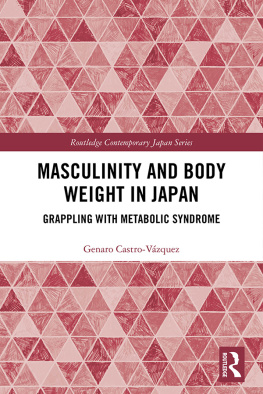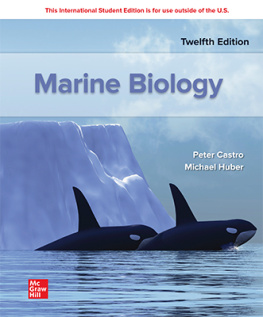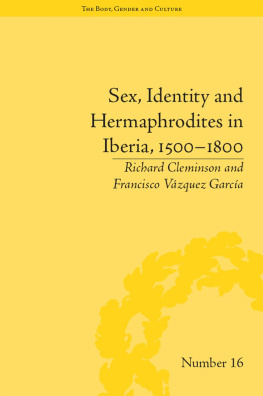Genaro Castro-Vázquez - Language, Education and Citizenship in Japan
Here you can read online Genaro Castro-Vázquez - Language, Education and Citizenship in Japan full text of the book (entire story) in english for free. Download pdf and epub, get meaning, cover and reviews about this ebook. year: 2013, publisher: Routledge, genre: Politics. Description of the work, (preface) as well as reviews are available. Best literature library LitArk.com created for fans of good reading and offers a wide selection of genres:
Romance novel
Science fiction
Adventure
Detective
Science
History
Home and family
Prose
Art
Politics
Computer
Non-fiction
Religion
Business
Children
Humor
Choose a favorite category and find really read worthwhile books. Enjoy immersion in the world of imagination, feel the emotions of the characters or learn something new for yourself, make an fascinating discovery.

- Book:Language, Education and Citizenship in Japan
- Author:
- Publisher:Routledge
- Genre:
- Year:2013
- Rating:3 / 5
- Favourites:Add to favourites
- Your mark:
- 60
- 1
- 2
- 3
- 4
- 5
Language, Education and Citizenship in Japan: summary, description and annotation
We offer to read an annotation, description, summary or preface (depends on what the author of the book "Language, Education and Citizenship in Japan" wrote himself). If you haven't found the necessary information about the book — write in the comments, we will try to find it.
Language, Education and Citizenship in Japan — read online for free the complete book (whole text) full work
Below is the text of the book, divided by pages. System saving the place of the last page read, allows you to conveniently read the book "Language, Education and Citizenship in Japan" online for free, without having to search again every time where you left off. Put a bookmark, and you can go to the page where you finished reading at any time.
Font size:
Interval:
Bookmark:
in Japan
Series editor:
Joy Hendry, Oxford Brookes University
Pamela Asquith, University of Alberta
Eyal Ben Ari, Hebrew University of Jerusalem
Hirochika Nakamaki, National Museum of Ethnology, Osaka
Kirsten Refsing, University of Copenhagen
Wendy Smith, Monash University
The World of Living Things by Kinji Imanishi
Translated by Pamela J. Asquith, Heita Kawakatsu, Shusuke Yagi
and Hiroyuki Takasaki
Edited and introduced by Pamela J. Asquith
Are young people creating a new society?
Edited by Gordon Mathews and Bruce White
Yongmei Wu
Everyday stories of social change
Lynne Y. Nakano
Arne Rkkum
The Japanese introspection practice of Naikan
Chikako Ozawa-de Silva
Essays in honour of Jan van Bremen
Edited by Joy Hendry and Heung Wah Wong
Edited by Maria Rodriguez del Alisal, Peter Ackermann and Dolores Martinez
Critical and historical perspectives
Edited by Rupert Cox
Self, individuality and learning in elementary education
Peter Cave
An ethnography of a Japanese corporation in France
Mitchell W. Sedgwick
Edited by Sylvie Guichard-Anguis and Okpyo Moon
Edited by Christoph Brumann and Robert A. Cox
The voices of tea practitioners in northern Japan
Kaeko Chiba
Continuity and transformation
Edited by Richard Ronald and Allison Alexy
The lives of war orphans and wives in two countries
Yeeshan Chan
Claiming a right to the past
Christoph Brumann
Soka Gakkai youth and Komeito
Anne Mette Fisker-Nielsen
Genaro Castro-Vzquez
Citizenship in Japan

by Routledge
2 Park Square, Milton Park, Abingdon, Oxon OX14 4RN
by Routledge
711 Third Avenue, New York, NY 10017
an informa business
A catalogue record for this book is available from the British Library
Castro-Vzquez, Genaro, 1966
Language, education and citizenship in Japan / Genaro Castro-Vzquez.
p. cm. (Japan anthropology workshop series)
1. Students, ForeignJapan. 2. Language acquisitionJapanForeign
speakers. 3. Language and languagesSocial aspectsJapan 4. Language
and languagesStudy and teachingJapan. 5. Language and cultureJapan.
6. Students, ForeignJapanSocial conditions. 7. StudentsJapanSocial
conditions. I. Title.
LB2376.6.J3C37 2012
378.19826910952dc23 2012012766
ISBN: 978-0-203-09538-6 (ebk)
by Taylor & Francis Books
Font size:
Interval:
Bookmark:
Similar books «Language, Education and Citizenship in Japan»
Look at similar books to Language, Education and Citizenship in Japan. We have selected literature similar in name and meaning in the hope of providing readers with more options to find new, interesting, not yet read works.
Discussion, reviews of the book Language, Education and Citizenship in Japan and just readers' own opinions. Leave your comments, write what you think about the work, its meaning or the main characters. Specify what exactly you liked and what you didn't like, and why you think so.








